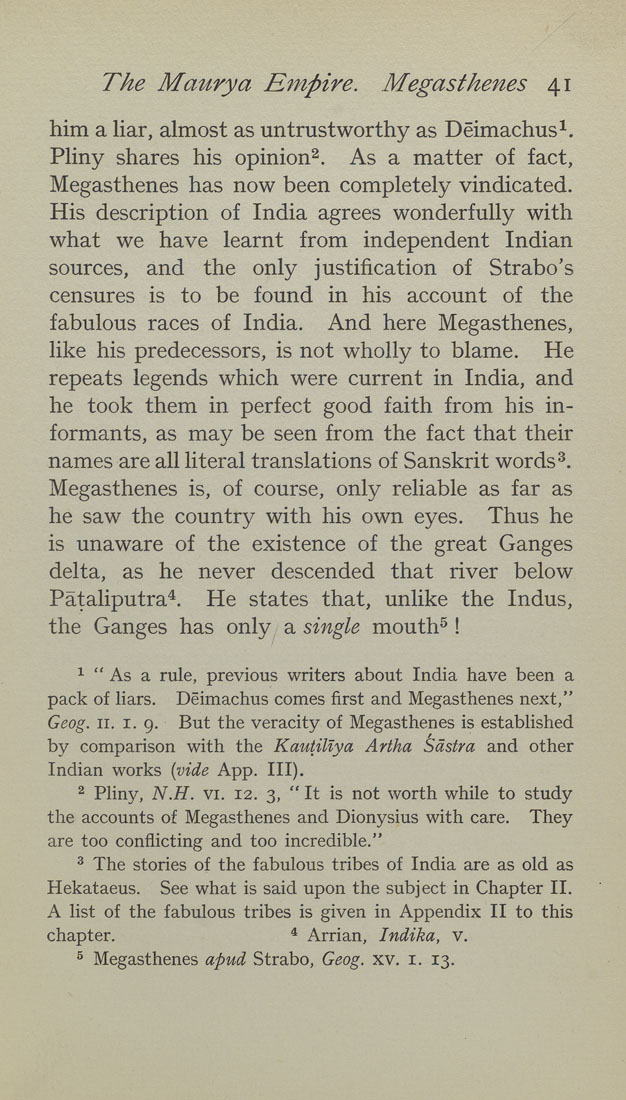The Maurya Empire. Megasthenes 41
him a liar, almost as untrustworthy as Deimachus^.
Pliny shares his opinion^. As a matter of fact,
Megasthenes has now been completely vindicated.
His description of India agrees wonderfully with
what we have learnt from independent Indian
sources, and the only justification of Strabo's
censures is to be found in his account of the
fabulous races of India. And here Megasthenes,
like his predecessors, is not wholly to blame. He
repeats legends which were current in India, and
he took them in perfect good faith from his in¬
formants, as may be seen from the fact that their
names are all literal translations of Sanskrit words ^.
Megasthenes is, of course, only reliable as far as
he saw the country with his own eyes. Thus he
is unaware of the existence of the great Ganges
delta, as he never descended that river below
Pataliputra*. He states that, unlike the Indus,
the Ganges has only a single mouth^ !
^ "As a rule, previous writers about India have been a
pack of liars. Deimachus comes first and Megasthenes next,"
Geog. II, I. g. But the veracity of Megasthenes is established
by comparison with the Kautillya Artha Sdstra and other
Indian works {vide App. III).
2 Pliny, N.H. vi. 12, 3, " It is not worth while to study
the accounts of Megasthenes and Dionysius with care. They
are too conflicting and too incredible."
^ The stories of the fabulous tribes of India are as old as
Hekataeus. See what is said upon the subject in Chapter II.
A list of the fabulous tribes is given in Appendix II to this
chapter. * Arrian, Indika, V.
^ Megasthenes apud Strabo, Geog. xv. i. 13.
|








